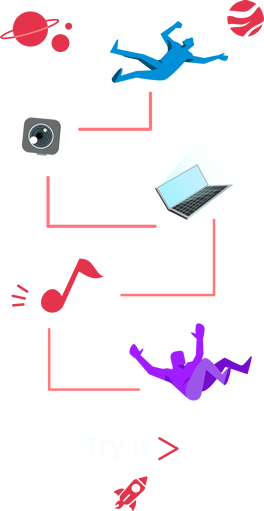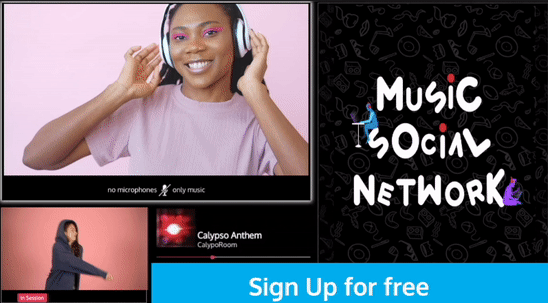How to get good at freestyling: 8 recommendations for beginners
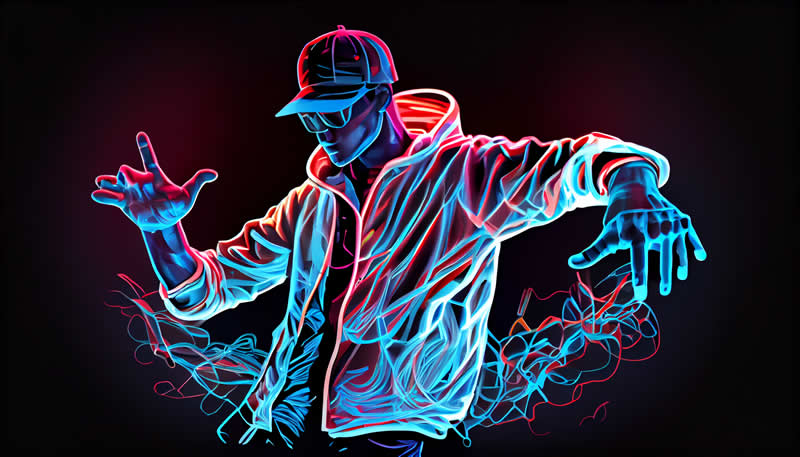
This post contains affiliate links. If you use these links to buy something we may earn a commission. Thanks.
Table of content
How to get good at freestyling: 8 recommendations for beginners - Introduction
Whether your rap career is just getting started or you've been around for a while, we're sure you'll agree that honing your technique is no simple undertaking.
You'll need to practice not only having a razor-sharp delivery but also being able to think of great freestyle lines on the spot.
Even some of the most musically gifted people in the world struggle to master freestyle rap since it is such a difficult genre to master on your own.
We have all the greatest advice for gaining confidence on the mic, from simple research to rehearsing in front of friends and concentrating on your flow.
For a more extensive understanding of rapping basics, check out our detailed guide on how to rap.
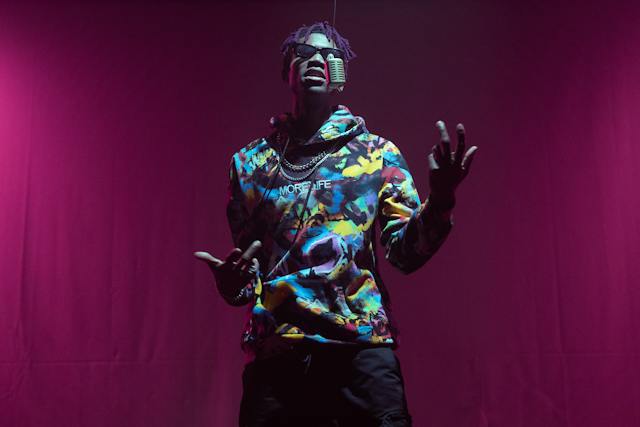
KEY TAKEAWAYS
Practice with Beats: Developing a good feel for different beats is crucial. Start with simple beats and learn how to sync your flow with them.
Learn from Others: Watching and listening to other freestylers can provide valuable insights. Attend live battles or listen to recorded freestyle sessions to pick up techniques.
Use Your Environment: Drawing inspiration from your surroundings can fuel your creativity. This practice can help in coming up with spontaneous and relatable content.
Essential Tools and Resources: Investing in the right tools, like the Arturia KeyLab Essential mk3 Controller, and educational materials, such as "How to Rap for beginners," can significantly enhance your skills.
Join CalypsoRoom: CalypsoRoom offers a unique platform for music lovers to connect and share their passion. It's a great way to meet like-minded individuals and practice your freestyle with an audience.
Determine your beat
You'll be inspired and your creative process will change thanks to a superb beat. It's simpler than you might imagine to simply find a beat without any words that can play continuously.
Start with a verse that rhymes if you already have one written, or try coming up with fresh rhymes while you listen to the beat.
Finding the perfect music to practice freestyle rapping, though, will take some time.
Find a piece of music with a four-four time signature and start with the downbeat; this will make the downbeat at the start of each measure strong and help you stay on track.
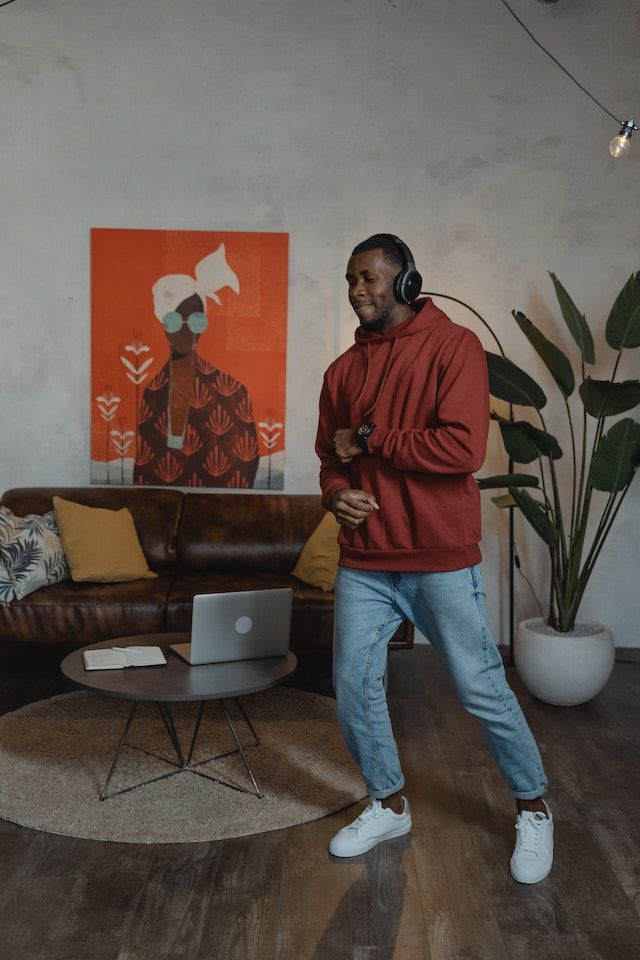
Listen to lots of freestyling
Compared to the tunes you've been listening to, unwritten freestyle raps from straight off the dome will likely be a little rougher and less polished, but they can also be more spontaneous and exciting.
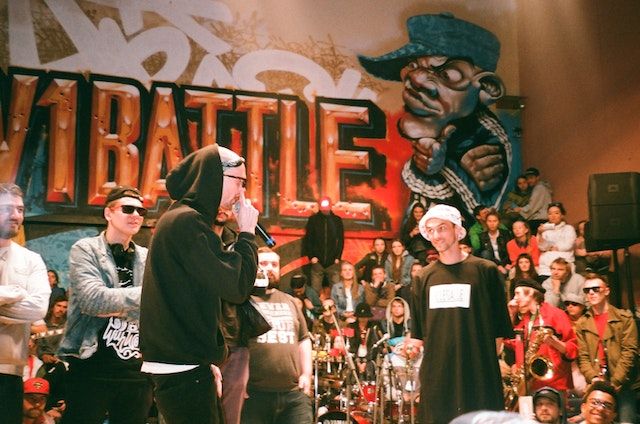
If your town hosts live battles or hip-hop freestyle tournaments, check them out. Additionally, it might be a useful tool to network with and meet other aspiring rhymers.
Describe the environment you're in
Use your circumstances to your advantage and rap about anything—what you see, how you feel, who you are with, etc.
This is a terrific way to come up with a theme when you are just practicing.
In particular, if you know them well, you should take advantage of your friends and make mention of them.
Poetry and freestyle hip-hop have more in common than you might imagine.
You're not just rapping when you use similes, descriptions, visuals, and, of course, rhymes; you're also writing poetry.
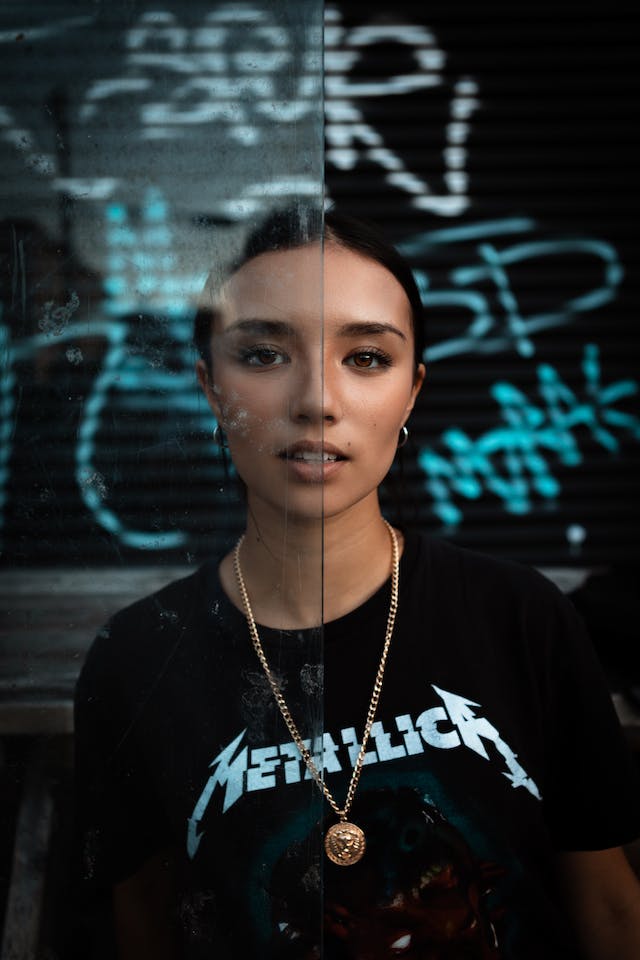
Backup rhymes
Rappers frequently make mistakes when freestyling because they are unable to come up with rhymes quickly enough.
Having backup rhymes you can use that you have already written and learned is a wonderful strategy to keep your freestyles rolling.
Then, you can use one of your backup rhymes to continue your flow if you find yourself stuck without a plan for your next bar.
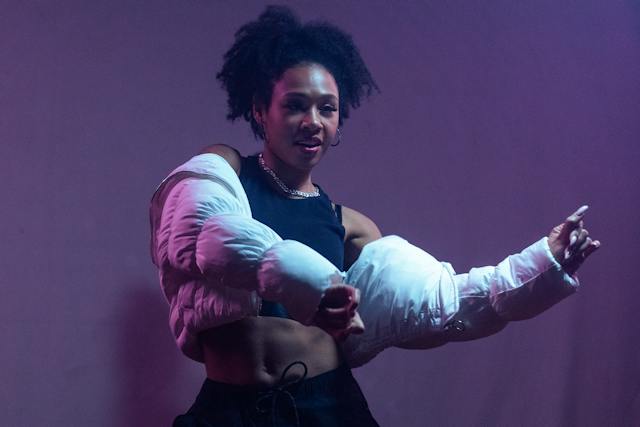
You'll use them far more frequently, and they won't stand out as much if you make sure they are sufficiently general to be applied to any freestyle topic.
Be yourself
Try not to imitate your favorite rapper; find your personal style instead, and stick to it!
By doing so, you will be able to choose the best style for your flow and get rid of the temptation to imitate those you have read about and admired.
To further understand rappers' unique stage gestures, like why they often grab their crotch, delve into our article "Why do rappers grab their crotch".

To explore the intriguing differences between rapping and traditional singing, and how these unique forms of musical expression contrast, check out our in-depth article "Is rapping singing?”.
Don't push yourself too much
The best strategy is to start out simply while learning something new. By beginning with a straightforward and easy task, you can test the waters before overloading yourself with difficult rhyming or a fast beat.
No matter how foolish you may feel or how difficult it may be, your major goal when learning how to freestyle should be to keep up your rap flow.
Continue speaking even if you stammer, chuckle, or can't rhyme.
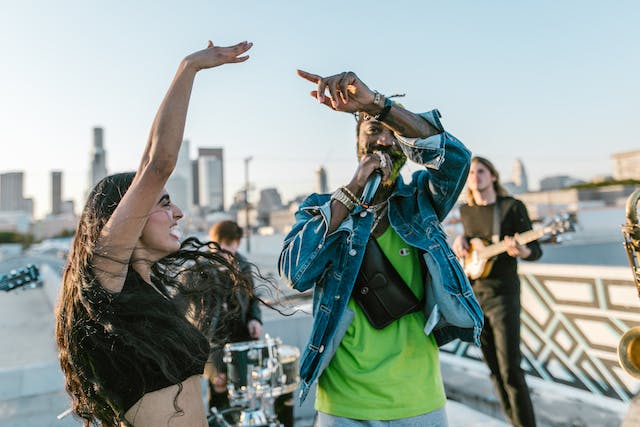
As long as you keep going, no matter what, you will eventually improve with each practice. Having the rhyme ready in your thoughts before you start is a wonderful way to keep the flow going.
Practice with your friends
Your pals will always be honest with you, which is a perfect way to be somewhat at ease while stepping outside of your comfort zone.
You can practice rapping in front of an audience with the help of your best friends, who will keep you on your toes.
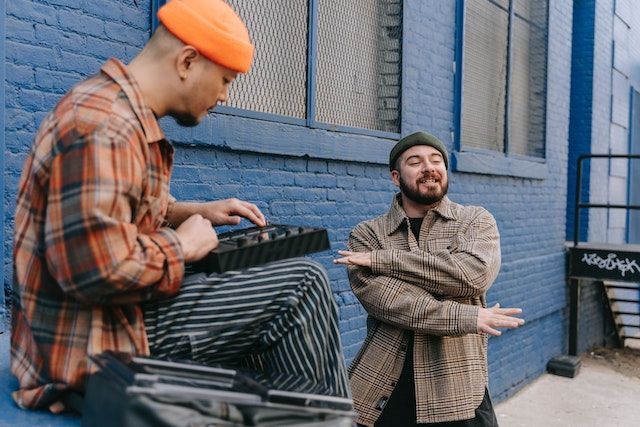
Write rhymes down
Raps and rhymes become more familiar to you the more you write them.
These rhyme groups will be useful to you when you start free-styling because they will make it easier for you to come up with ideas rapidly.
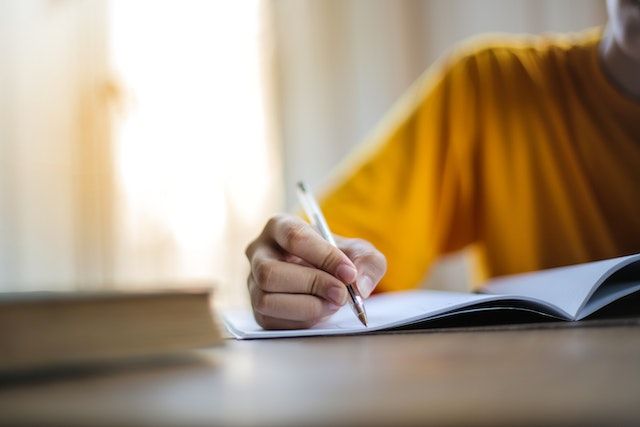
If what you're writing isn't "rap," don't worry about it.
Developing solid writing and journaling habits will keep your mind focused on grammar and composition, which is something you'll need to master rapidly if you want to freestyle.
Essential reading for aspiring freestylers
Embarking on your freestyle rap journey? To help you master the art, we recommend two invaluable resources.
Firstly, 'How to Rap for beginners: Ultimate guide with tips and tricks' is an essential read.
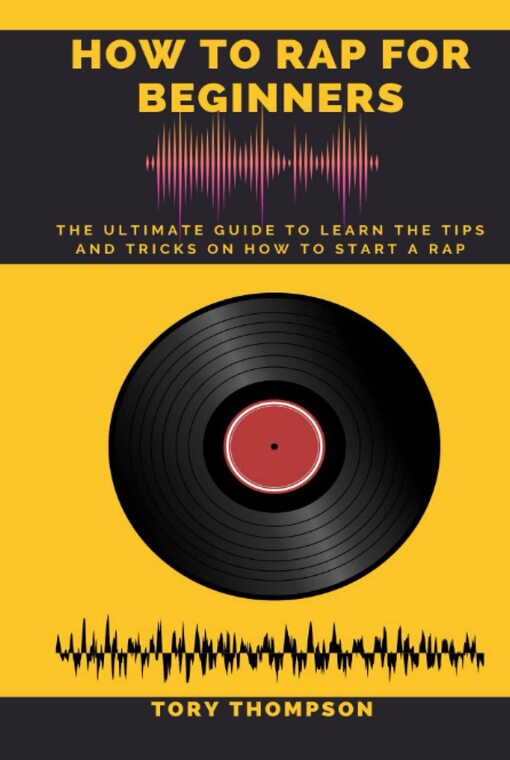
For those looking to sharpen their rhyming skills, 'The Complete Rhyming Dictionary' is a treasure trove.
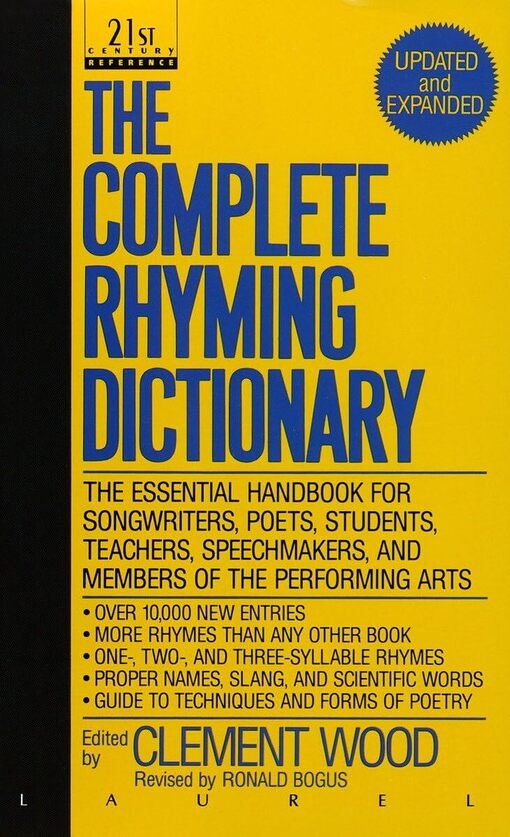
Essential gear for aspiring rappers
As the CalypsoRoom team, we've had the pleasure of trying the Arturia KeyLab Essential mk3 Controller, and it's a game-changer for beginners in rap.
Its intuitive design and comprehensive control options make beat creation and music editing a breeze.
We found it particularly beneficial for those starting in rap, as it seamlessly integrates with most music software, making it a versatile and essential tool for your creative arsenal.
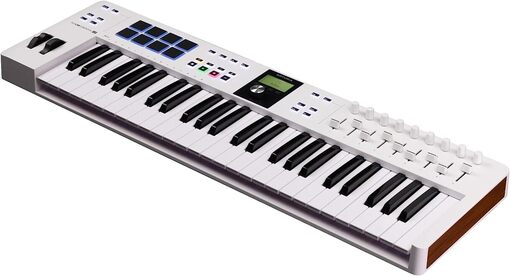
Having experimented with the PreSonus AudioBox 96 25th Anniversary edition, we at CalypsoRoom can confidently say it's a top choice for budding rappers.
This audio interface delivers crystal clear sound quality, essential for capturing the nuances of your rap vocals.
Especially for those just stepping into the world of rap, this equipment provides the reliability and quality necessary to produce professional-grade recordings from your home studio.
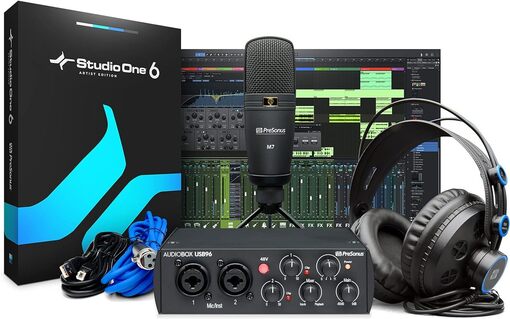
How to get good at freestyling - Conclusion
As we've journeyed through these crucial tips for mastering freestyle rap, remember that practice, creativity, and the right tools are your best allies.
And speaking of unique experiences, why not take your love for music a step further?
CalypsoRoom offers an innovative platform where music enthusiasts can connect through webcam and enjoy music together in real time.
It's a space where you can share your passion, meet like-minded individuals, and perhaps even showcase your new freestyling skills.
For aspiring artists looking to make it big, our comprehensive guide on "How to become a famous rapper" offers valuable insights.
Join the CalypsoRoom community today and elevate your musical journey by sharing it with others!
Thanks for reading,
The CalypsoRoom Team
Frequently Asked Questions (FAQs)
What are the basic techniques to improve freestyling?
Basic techniques to improve freestyling include practicing with different beats to understand timing and rhythm, and actively listening to and learning from other freestylers to gain new perspectives and styles.
How often should one practice freestyling to see improvement?
Consistent practice is key to improving in freestyling; practicing several times a week can lead to noticeable improvements, as it helps in refining skills and building confidence.
Can freestyling skills be learned online?
Yes, freestyling skills can be learned online through various tutorials, online courses, and by watching and analyzing videos of skilled freestylers to understand different styles and techniques.
What are common mistakes beginners make in freestyling?
Common mistakes beginners make in freestyling include sticking too rigidly to pre-written lines, which can hinder spontaneity, and focusing too much on complexity rather than clarity and flow.
How does one develop their own unique style in freestyling?
Developing a unique style in freestyling involves experimenting with different flows, wordplay, and themes, and drawing inspiration from personal experiences and interests to create a style that resonates personally.
back
Written by CalypsoRoom Editorial Team
The CalypsoRoom Editorial Team is a skilled and diverse group of writers, researchers, and industry specialists who have access to Calypso's data and information in order to give you broad knowledge about the music industry as well as helpful advice to help you manage your music and dancing career.
Updated January 2024
Company number: 681223
James's Walk 31, Dublin, Ireland
contact@calypsoroom.com
+353 (89) 435 8928

